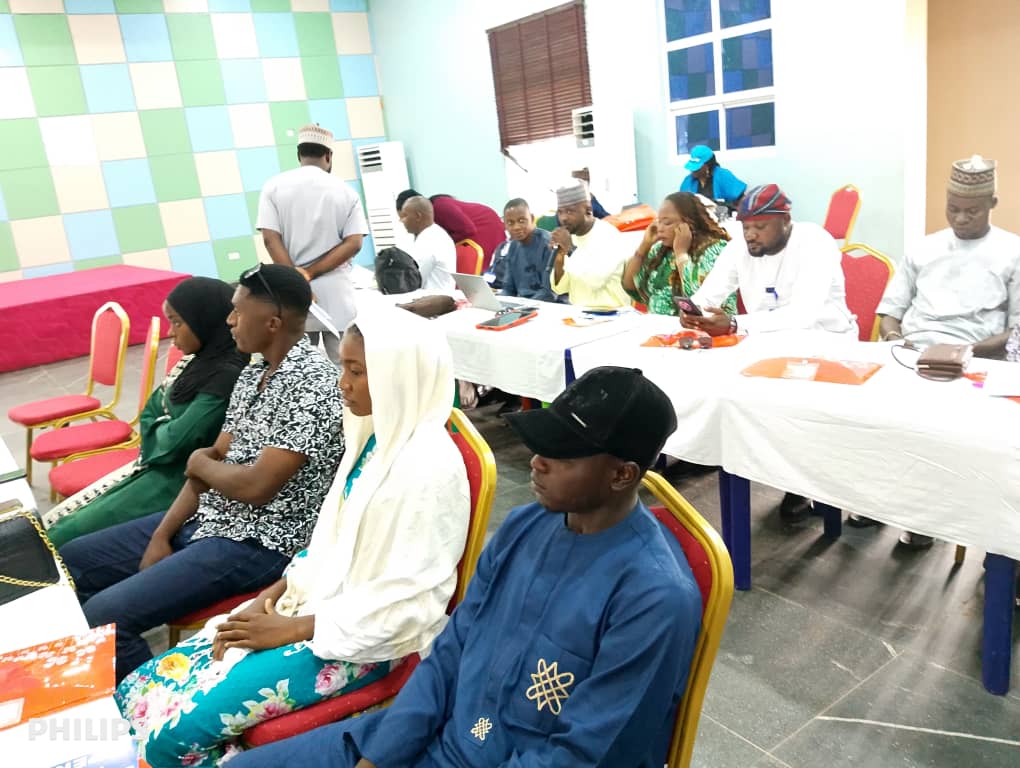
1.3million children to be vaccinated against Measles-Rubella in Nasarawa
The Nasarawa State Primary Healthcare Development Agency has unveiled plans to administer vaccines to over 1.3million underage children against Measles and Rubella across the 13 Local Government Areas of the state.
Speaking during a media dialogue on the Integrated Polio-Measles-Rubella vaccination campaign in Lafia, the state capital, on Friday, Ishaya Amegwa, State Health Educator of the agency, said 1,372, 000 children between the ages of 9 months to 14 years have been targeted for the exercise.
He noted that the 10-day vaccination exercise would begin from October 6 to 16, and called for enhanced media advocacy to meet the target of eliminating the scourge by 2030 globally.
Amegwa further highlighted that the vaccines have been tested and proven to be safe and effective, noting that they will be given free of charge to children within the eligible age.
On his part, Dr Luqman Ahmed, United Nations Children’s Fund Health Specialist, disclosed that Nasarawa State would launch the vaccination in the Akwanga LGA of the state on October 7, and urged traditional rulers and religious leaders to advocate extensively for the success of the exercise across the state.
While emphasising that the vaccines are highly effective, Dr Ahmed appealed that no child should be left unvaccinated during the period of the exercise.
He noted that the integration of the Polio-Measles-Rubella vaccination under a single exercise had eased the process with a view to achieving goals seamlessly.
“Our collective action is absolutely needed to end the transmission of the deadly poliovirus by the end of 2025. We know the oral polio vaccine has brought down the incidence of paralysis due to polioviruses by 99.9% around the world.
“But to defeat poliovirus, 95% of all children below the age of five need to receive the Oral Polio Vaccine in every vaccination round until the virus is completely eradicated,” he said.
The UNICEF Health Specialist further expressed concern that Nigeria has one of the highest numbers of zero-dose children in the world, adding that Rubella continues to threaten unborn children with the continuing spread of the variant poliovirus in the country.
He added, “We have made remarkable progress in the fight against preventable diseases. We all stood tall as Nigeria was declared free of wild poliovirus, united by a single mission: to protect our children and communities from preventable diseases through vaccination.
“Today, we stand on the threshold of another milestone, the introduction of the Measles-Rubella vaccine into our national immunisation schedule. For decades, measles has been one of the leading killers of children under five. Rubella, though less well known, causes lifelong harm when it infects pregnant women and children.
“With the introduction of the Measles-Rubella (MR) vaccine, we now have an additional, powerful tool to stop both of these diseases and protect generations yet unborn. This historic step is possible through the leadership of our Government at both National and State levels, with strong support from UNICEF, World Health Organisation, Gavi and partners.”
Also speaking, Dr Usman Iskilu Saleh, Executive Secretary of the Nasarawa State Primary Healthcare Development Agency, represented by Abubakar Ibrahim, Director of Health Education and Social Mobilisation, outlined the extensive efforts undertaken to ensure that members of the public are accurately informed about the vaccines.
“The involvement of various stakeholders has been pivotal. We have held numerous meetings to disseminate information that will lead to the success of these vaccinations,” he emphasised.
The Executive Secretary further expressed gratitude to UNICEF and the other partners for their unwavering support in combating the scourge of measles and rubella in the state, and commended the Nasarawa State government for becoming the first in Nigeria to integrate the MRV into routine immunisation programs.
During the dialogue, Dr Kayode Olawuyi from the African Field Epidemiology Network delivered a lecture on the significance of the Measles-Rubella vaccine.
He educated participants on the symptoms and complications linked to the diseases, particularly highlighting congenital rubella syndrome as a serious consequence for unvaccinated pregnant women.
“The role of the media is indispensable in public health. Parents need to be enlightened on the importance of vaccinating their children to protect them from these preventable diseases,” he emphasised.
Delivering a lecture, Kalu Idika, an ace media practitioner, challenged the media to ensure the dissemination of accurate information about the diseases, maintaining that the vaccines had been in existence.
He added that the vaccines had been certified by the World Health Organisation and the National Agency for Food and Drug Administration and Control; therefore, parents and guardians have no reason to entertain any fears about the vaccines.
The media dialogue event brought together media professionals, healthcare partners from across the 13 LGAs of the state, among other stakeholders.
Similarly, the United Nations Children’s Fund on September 30, 2025, also announced plans to vaccinate no fewer than 7.8 million children between the ages of nine months and 14 years against measles and rubella in Kano State.
Rahama Farah, UNICEF Chief of Field Office Kano, made this known during a Media Dialogue, Orientation and Mobilisation Session on the Integrated Measles-Rubella Polio Vaccination Campaign held in Kano.
He explained that the campaign, scheduled to begin on October 25, would also target 2.3 million children under five years old for polio vaccination.